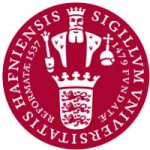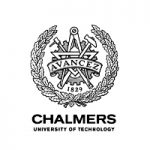项目介绍
There is a vacancy for a PhD Research Fellow in the early Archean terrestrial sulfur cycle at the Department of Earth Science, University of Bergen. The position is for a fixed-term period of 3 years with the possibility of a 4th year with career-promoting work (e.g. teaching duties at the Department). The position is linked to the Centre for Deep Sea Research (CDeepSea).
About the project/work tasks:
Sulfur has been a key element in understanding Earth’s surface conditions through geological time. It is preserved In the rock record in both an oxidized (sulfate) and reduced (sulfide) form, and atmospheric, chemical and biological redox reactions produce characteristic changes in stable sulfur isotope ratios that can be traced in rocks all the way back to the Archean eon. Multiple sulfur isotopes have been used successfully to trace sulfur cycling in Archean marine settings, but relatively little is known about near-shore and terrestrial environments. Sulfur isotopes in these locations are expected to better capture atmospheric processes as well as microbial metabolisms under elevated input of nutrients from emerged land, and provide an important comparison for the Archean marine sulfur isotope record.
This PhD position is dedicated to increase our understanding of the early Archean terrestrial sulfur cycle. The project will primarily focus on samples from the 3.2 Ga Moodies Group in the Barberton Greenstone Belt, South Africa that contain silicified sulfate concretions and have been obtained through scientific drilling in the ICDP project Barberton Archean Surface Environments (BASE). Work will include the interpretation of CT and µCT data to understand mineralogical relations and concretion growth processes, bulk and SIMS multiple sulfur isotope analyses of sulfate and sulfide minerals in the concretions and surrounding sedimentary rocks, and integration of field observations and geochemical data to build a holistic model for the sulfur cycle in early shallow marine to subaerial settings.
The candidate will be supervised by an international team of researchers from the University of Bergen (Dr. Desiree Roerdink, main supervisor), Utrecht University (Prof. Paul Mason) and Naturalis Biodiversity Center (Dr. Mark van Zuilen) in the Netherlands. In addition, the candidate will be introduced to a large network of Archean researchers through ICDP BASE.
It is planned that some of the work will be carried out abroad. There will therefore be a need to travel for short periods during the project period in order to carry out the project.
The preferred starting date is as soon as possible.
Qualifications and personal qualities:
- Applicants must hold a master’s degree or equivalent education in geoscience, with a specialization in geochemistry, mineralogy, petrology or equivalent. Master students can apply provided they complete their final master exam before 15.01.2025. It is a condition of employment that the master’s degree has been awarded.
- Demonstrated expertise in stable isotope geochemistry, for example through courses or thesis work, is a requirement.
- Experience with micro-analytical techniques such as SEM and (micro-)CT scanning is an advantage.
- Experience with Archean rocks, preferentially the sedimentary rock record, is an advantage.
- Applicants must be able to work independently and in a structured manner and demonstrate good collaborative skills.
- Applicants must be proficient in both written and oral English in scientific environments (presentations, publications). Personal and relational qualities will be emphasized. Ambitions and potential will also count when evaluating the candidates.Special requirements for the position: The University of Bergen is subjected to the regulations for export control. The regulation will be applied in the processing of the applications.
About the PhD position (applies to university PhD positions):
About the PhD Research Fellow
The fellowship will be for a period of 3 years, with the possibility for a 4th year, consisting of 25 % career-promoting work (e.g. teaching responsibilities at the department) distributed over the employment period. The 4th year is contingent on the qualifications of the candidate and the teaching needs of the department and will be decided by the head of department upon appointment.
The employment period may be reduced if you have previously been employed in a qualifying post (e.g. research fellow, research assistant).
About the research training
As a PhD Research Fellow, you must participate in an approved educational programme for a PhD degree within a period of 3 years. The deadline for applying for admission to the PhD programme at The Faculty of Mathematics and Natural Sciences is 2 months after you start your position or after the start of the research project that will lead to the PhD degree. It is a condition that you satisfy the enrolment requirements for the PhD programme at the University of Bergen.
We can offer:
- A good and professionally stimulating working environment.
- Salary as PhD research fellow (code 1017) in the state salary scale. This constitutes a gross annual salary of NOK 540 500 (equivalent to pay grade 55). Further increases in salary are made according to length of service in the position.
- Enrolment in the Norwegian Public Service Pension Fund
- Good welfare benefits
Your application must include:
- A cover letter with a brief account of the applicant’s research interests and motivation for applying for the position.
- A short supplementary text outlining your experience with stable isotope geochemistry (for example, courses taken, thesis work).
- The names and contact information for two referees. One of these should be the main advisor for the master’s thesis or equivalent thesis.
- CV
- Transcripts and diplomas showing completion of the bachelor’s and master’s degrees. If you have not yet completed your master’s degree, please submit a statement from your institution confirming the expected date of award of your master’s degree. Your master’s degree must be documented with transcripts and/or diploma before starting in the position.
- Relevant certificates/references
- Approved documentation of proficiency in English (if required, cf. English language requirements for PhD admission).
- A list of any works of a scientific nature (publication list).
- Any publications
The application and appendices with certified translations into English or a Scandinavian language must be uploaded at Jobbnorge.
General information:
For further details about the position, please contact Associate Professor Desiree Roerdink, Department of Earth Science, UiB, email: desiree.roerdink@uib.no, phone: +47 55 58 38 59 or Associate Professor Steffen Leth Jørgensen (Director Centre for Deep Sea Research), Department of Earth Science, UiB, email: mailto:steffen.jorgensen@uib.no, phone: +47 55 58 38 60.
For HR related questions please contact adviser Mathilde Høgalmen, email: Mathilde.Hogalmen@uib.no.
Diversity is a strength that enables us to solve our tasks even better. UiB therefore needs qualified employees regardless of gender, ethnicity, religion, worldview, disability, sexual orientation, gender identity, gender expression, and age.
The University of Bergen applies the principle of public access to information when recruiting staff for academic positions.
Information about applicants may be made public even if the applicant has asked not to be named on the list of persons who have applied. The applicant must be notified if the request to be omitted is not met.
We encourage applicants with disabilities, immigrant backgrounds, or gaps in their CV to apply. By indicating such circumstances in your application, you may receive favourable consideration. We ensure that at least one qualified applicant from each of these groups is invited for an interview as part of our commitment to inclusivity and equal opportunity. For further information about the recruitment process, click here.
联系方式
电话: +47 55 58 00 00相关项目推荐
KD博士实时收录全球顶尖院校的博士项目,总有一个项目等着你!





